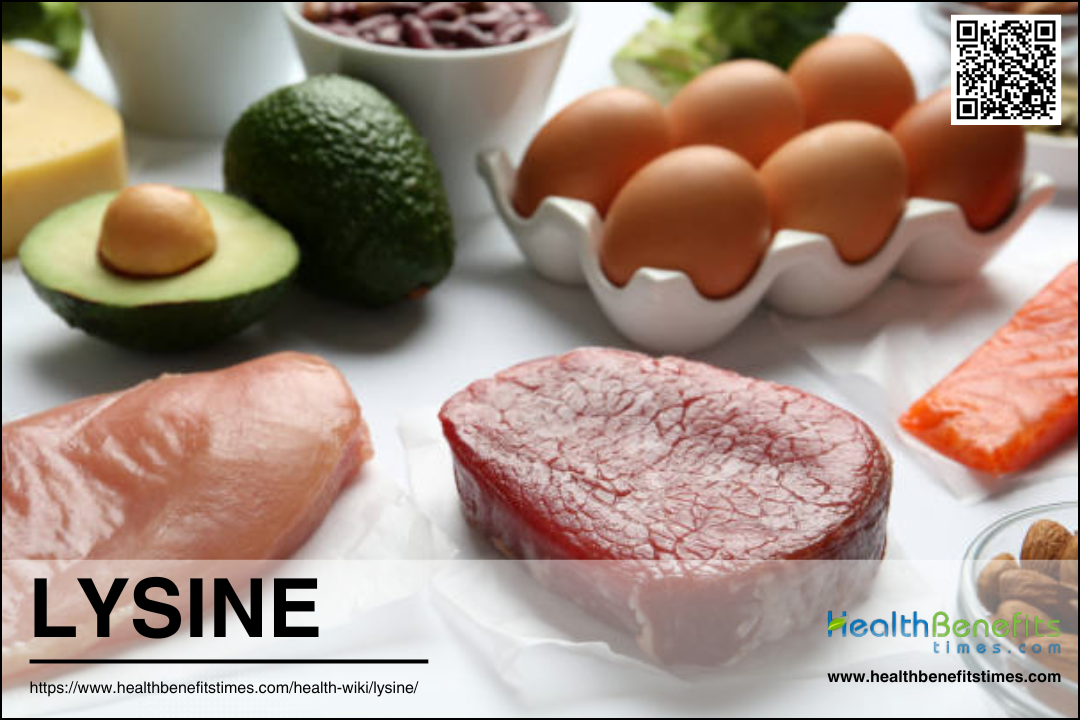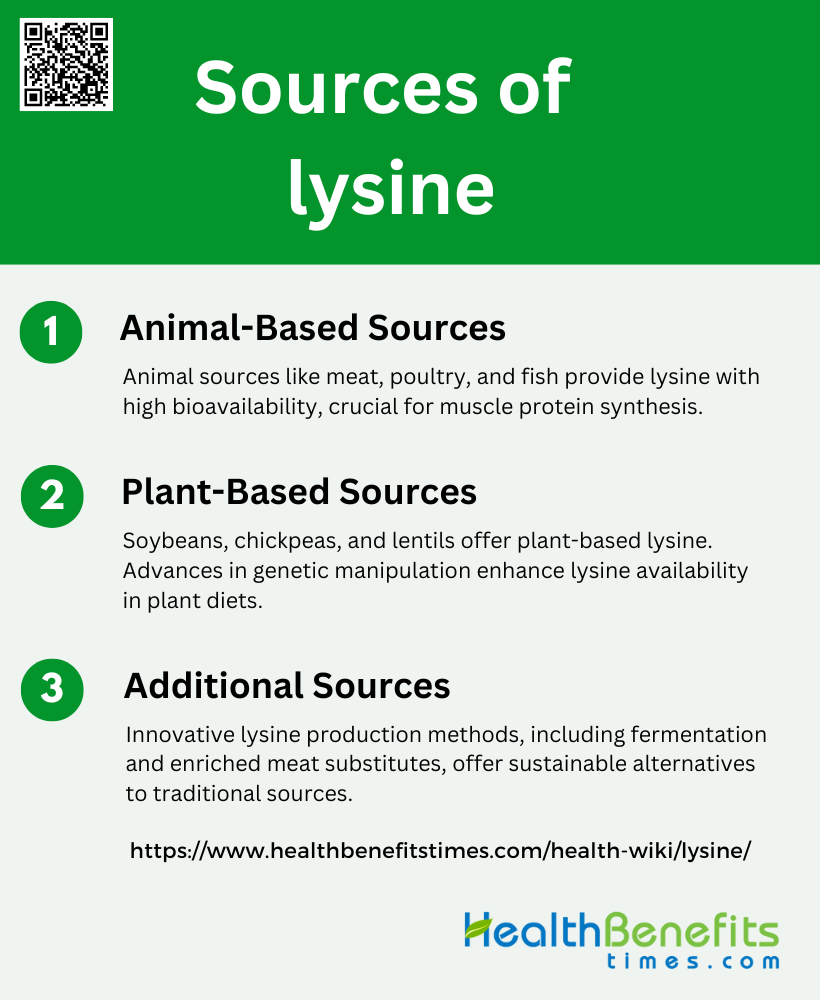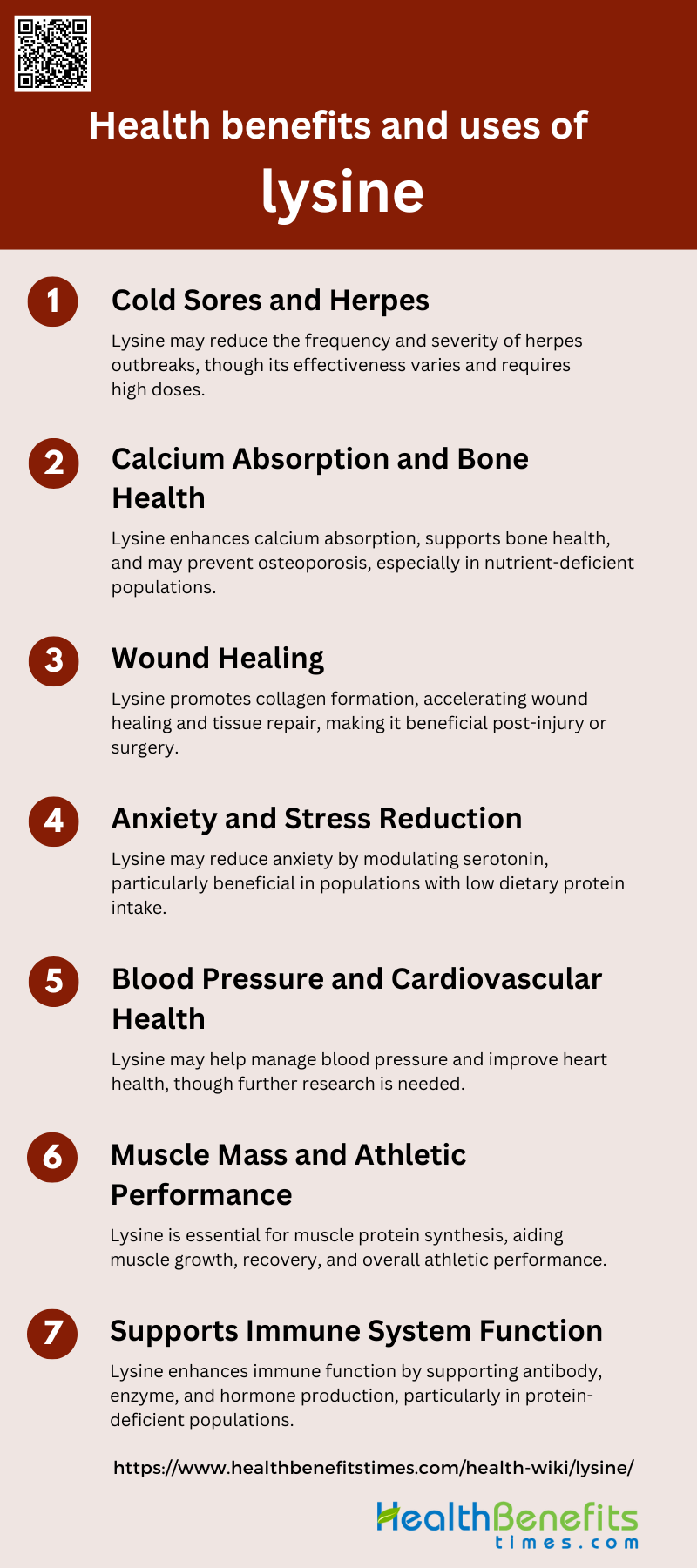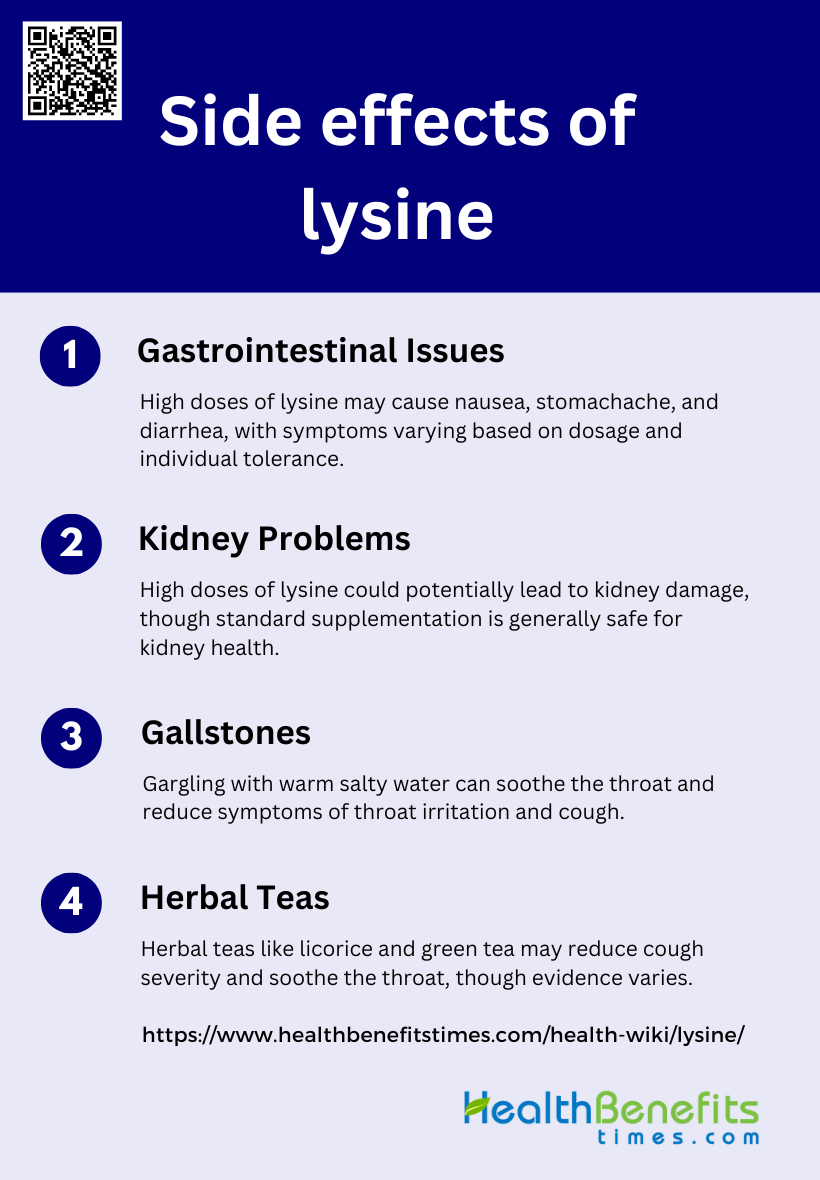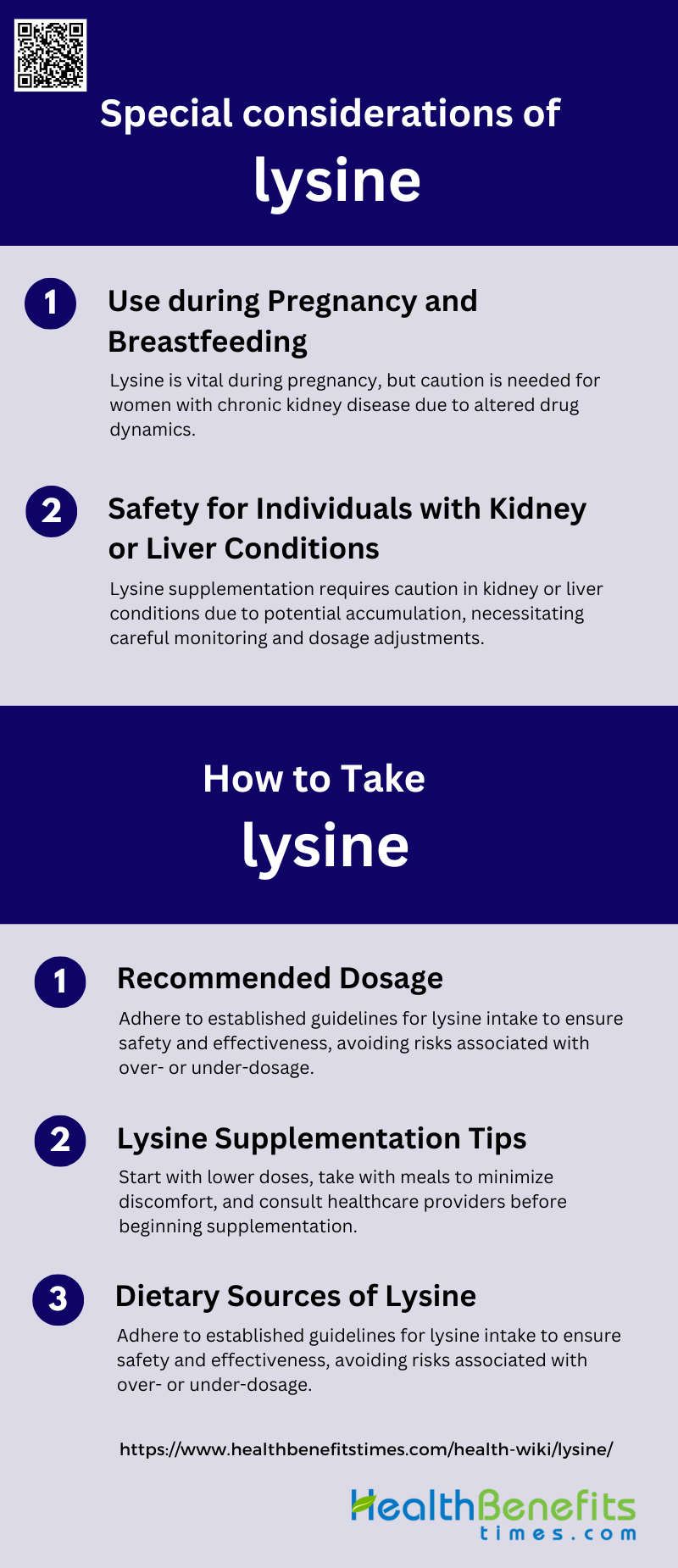Lysine is an essential amino acid that cannot be synthesized by higher organisms, including humans, and must be obtained through diet to support protein synthesis and other metabolic functions. It plays a crucial role in various biological processes, including the development and maintenance of body tissues, and is particularly important in the context of protein synthesis. Lysine is also involved in the regulation of metabolic pathways and cellular functions, such as the activation of the mTOR pathway, which promotes protein synthesis in bovine mammary epithelial cells. Lysine is a precursor for important metabolites like glutamate, which is significant for both plant growth and mammalian brain function. The catabolism of lysine primarily occurs in the liver, where it undergoes a series of reactions leading to the production of acetyl-CoA. Moreover, lysine’s interaction with RNA and its role in biomolecular condensation highlight its importance in cellular regulation and stress responses. Understanding lysine metabolism and its dietary requirements is essential for optimizing health and growth in both humans and animals.
Sources of lysine
Lysine is an essential amino acid that the body cannot produce on its own, making it necessary to obtain it from dietary sources. Incorporating lysine-rich foods into your diet can support protein synthesis, immune function, and overall health. Here are some of the top sources of lysine:
1. Animal-Based Sources
Animal-based sources of lysine are crucial for human nutrition due to their high bioavailability and complete amino acid profiles. Common sources include meat, poultry, fish, and dairy products. For instance, chicken breast and fish meals are rich in lysine and are often used in both human diets and animal feed formulations. These sources are particularly effective in stimulating muscle protein synthesis, as demonstrated by studies comparing the muscle protein synthetic response to lysine-enriched plant-based proteins and chicken.
2. Plant-Based Sources
Plant-based sources of lysine are becoming increasingly important as sustainable alternatives to animal proteins. Soybeans are the primary plant-based source of lysine, but other legumes such as chickpeas and lentils also contribute significantly. Despite the lower lysine content in cereals, advancements in genetic manipulation and fermentation processes are being explored to enhance lysine availability in plant-based diets. Recent studies have shown that lysine-enriched plant-based protein blends can stimulate muscle protein synthesis comparably to animal-based proteins, highlighting their potential as effective dietary alternatives.
3. Additional Sources
Beyond traditional animal and plant-based sources, there are innovative methods to produce lysine. These include fermentation processes using sugar and other non-standard plant-based materials. Such methods could diversify the lysine supply and reduce reliance on conventional agricultural practices. Additionally, the development of meat substitutes and protein blends enriched with lysine offers new avenues for meeting dietary lysine requirements while supporting sustainable food systems. These alternatives are crucial for addressing global nutritional needs and environmental challenges associated with protein production.
Health Benefits and Uses of Lysine
Lysine offers numerous health benefits and is vital for various bodily functions. From supporting immune health to aiding in calcium absorption, lysine plays a significant role in maintaining overall well-being. Below are some key health benefits and uses of lysine:
1. Cold Sores and Herpes
Lysine has been extensively studied for its role in managing herpes simplex virus (HSV) infections, including cold sores and genital herpes. Clinical studies have shown mixed results regarding its effectiveness. Some research indicates that lysine supplementation can reduce the frequency and severity of herpes outbreaks. For instance, a survey involving 1543 subjects found that 84% reported fewer recurrences and faster healing times when taking lysine supplements. However, other studies suggest that lysine is ineffective for HSV prophylaxis unless taken in high doses exceeding 3 grams per day. Despite these mixed results, many patients find lysine beneficial for managing herpes symptoms.
2. Calcium Absorption and Bone Health
Lysine plays a crucial role in calcium absorption and bone health. It enhances the intestinal absorption of calcium and reduces its excretion, thereby contributing to bone strength and density. This is particularly important for preventing osteoporosis and other bone-related disorders. A review highlighted that lysine, along with other nutrients like vitamin D and protein, is essential for maintaining optimal bone mass and muscle health. This is especially significant in populations with low dietary intake of these nutrients, where lysine supplementation can help improve bone health and prevent metabolic diseases.
3. Wound Healing
Lysine is vital for wound healing due to its role in collagen formation, a key protein in skin and tissue repair. It helps in the synthesis of collagen, thereby accelerating the healing process of wounds and surgical incisions. Lysine’s ability to promote tissue repair makes it beneficial for recovery from injuries and surgeries. The amino acid’s involvement in protein synthesis and enzyme production further supports its role in wound healing. Therefore, lysine supplementation can be a valuable addition to the diet for individuals recovering from wounds or surgical procedures.
4. Anxiety and Stress Reduction
Lysine has been studied for its potential to reduce anxiety and stress. It is believed to modulate serotonin receptors, which play a role in mood regulation. Some studies suggest that lysine supplementation can alleviate symptoms of anxiety and improve mood. For example, lysine has been shown to reduce anxiety in individuals with low dietary intake of this amino acid. This effect is particularly beneficial in populations with limited access to high-quality protein sources, where lysine supplementation can help improve mental well-being and reduce stress-related symptoms.
5. Blood Pressure and Cardiovascular Health
Lysine may contribute to cardiovascular health by influencing blood pressure and reducing the risk of heart disease. It is involved in the production of carnitine, a compound that helps convert fatty acids into energy and lowers cholesterol levels. Some studies suggest that lysine supplementation can help manage blood pressure and improve overall cardiovascular health. However, more research is needed to fully understand its impact on heart health. Patients with cardiovascular conditions should consult their healthcare providers before starting lysine supplements due to potential risks.
6. Muscle Mass and Athletic Performance
Lysine is essential for muscle protein synthesis, making it crucial for muscle mass and athletic performance. It helps in the repair and growth of muscle tissues, which is vital for athletes and individuals engaged in regular physical activity. A study highlighted the importance of lysine, along with other nutrients like protein and vitamin D, in maintaining muscle mass and preventing muscle loss. Adequate lysine intake can enhance muscle strength, improve recovery from exercise, and support overall physical fitness, making it a valuable nutrient for athletes and active individuals.
7. Supports Immune System Function
Lysine plays a significant role in supporting the immune system. It helps in the production of antibodies, enzymes, and hormones that are crucial for immune function. Research on turkeys has shown that optimal levels of lysine in the diet can enhance immune status and reduce the risk of infections. This finding suggests that lysine supplementation can be beneficial for improving immune response and preventing illnesses. Ensuring adequate lysine intake is particularly important in populations with limited access to high-quality protein sources, where it can help boost immune function and overall health.
Side Effects of Lysine
While lysine is generally considered safe when consumed in appropriate amounts, it’s important to be aware of potential side effects. Some individuals may experience adverse reactions, especially when taking lysine supplements in high doses. Here are some side effects of lysine:
1. Gastrointestinal Issues
L-lysine supplementation has been associated with gastrointestinal issues, primarily when taken in high doses. Studies have shown that excessive intake of l-lysine can lead to symptoms such as nausea, stomachache, and diarrhea. For instance, a systematic review of clinical trials involving 3357 subjects found that gastrointestinal symptoms were the most commonly reported adverse events, although the risk was not statistically significant at a risk ratio of 1.02. In patients with lysinuric protein intolerance (LPI), high doses of oral lysine caused profuse diarrhea, likely due to unabsorbed lysine in the gut. However, smaller, individually adjusted doses were better tolerated. Additionally, a study in Ghana found that lysine supplementation reduced diarrheal episodes in children, suggesting a complex relationship between dosage and gastrointestinal effects.
2. Kidney Problems
High doses of l-lysine have been linked to nephrotoxicity, particularly in animal studies. Research on freshwater fish, Clarias batrachus, demonstrated that acute high doses of l-lysine led to significant kidney damage, including glomerular dilation, hemorrhages, and cloudy swelling of renal tubules. These findings raise concerns about the potential renal toxicity of high-dose lysine in humans. However, in clinical settings, no significant renal toxicity has been reported in healthy individuals taking recommended doses of lysine. In patients with lysinuric protein intolerance, long-term low-dose lysine supplementation did not result in any recognizable kidney-related side effects. Therefore, while high doses pose a risk, standard supplementation appears safe for kidney health.
3. Gallstones
There is limited direct evidence linking l-lysine supplementation to the formation of gallstones. The available literature does not specifically address gallstone formation as a side effect of lysine intake. Most studies focus on gastrointestinal and renal effects, with no significant mention of gallbladder issues. Given the lack of direct evidence, it is difficult to conclusively state that lysine supplementation contributes to gallstone formation. Further research is needed to explore any potential connection between lysine intake and gallstone development.
4. Allergic Reactions
Allergic reactions to l-lysine are relatively rare but can occur. Symptoms may include rash, itching, swelling, dizziness, and difficulty breathing. These reactions are typically associated with hypersensitivity to the amino acid or its formulations. While the reviewed studies did not report significant allergic reactions among participants, it is important to consider individual variability in response to supplementation. Healthcare providers should monitor patients for any signs of allergic reactions, especially when starting a new supplement regimen. Overall, while allergic reactions are not commonly reported, they remain a potential risk for some individuals.
Interactions with Medications Lysine
Potential Interactions with Calcium Supplements and Antibiotics
L-lysine has been shown to interact with calcium supplements by enhancing calcium absorption and improving renal conservation of absorbed calcium. In a study involving both healthy and osteoporotic women, L-lysine supplementation led to a significant increase in intestinal calcium absorption and a blunted calciuric response to an oral calcium load, suggesting a positive calcium balance. Additionally, L-lysine supplementation in uremic rats demonstrated a slight but significant increase in serum calcium levels, further supporting its role in calcium metabolism. However, the interaction of L-lysine with antibiotics, particularly aminoglycosides, can be problematic as it may enhance the nephrotoxic effects of these drugs. Therefore, it is crucial to monitor calcium and antibiotic interactions when considering L-lysine supplementation.
Importance of Consulting with a Healthcare Provider before Starting Lysine Supplements
Consulting with a healthcare provider before starting L-lysine supplements is essential due to its potential interactions with other medications and its significant effects on calcium metabolism. L-lysine can enhance calcium absorption and improve renal conservation, which may be beneficial for individuals with osteoporosis but could pose risks for those with conditions like hypercalcemia. Additionally, L-lysine’s interaction with antibiotics, particularly those that are nephrotoxic, necessitates careful medical supervision to avoid adverse effects. A healthcare provider can offer personalized advice, considering individual health conditions and current medications, ensuring safe and effective use of L-lysine supplements.
Lysine Overdose: Symptoms and Risks
Risks Associated with Excessive Lysine Intake
Excessive intake of l-lysine, an amino acid commonly used in dietary supplements, has been evaluated for safety through various clinical studies. The primary risk associated with high doses of l-lysine is related to gastrointestinal symptoms. Studies have shown that doses ranging from 16.8 to 17.5 grams per day over periods extending up to three years did not result in statistically significant adverse effects, with a risk ratio of 1.02 for gastrointestinal issues. However, the provisional no-observed-adverse-effect level (NOAEL) for healthy individuals was identified at 6 grams per day, suggesting that higher doses could potentially lead to discomfort or other gastrointestinal problems.
Symptoms of Lysine Overdose
The symptoms of lysine overdose are primarily gastrointestinal in nature. Clinical studies have reported subjective symptoms such as nausea, stomachache, and diarrhea among individuals consuming high doses of l-lysine. Despite these reports, the risk analysis did not show a significant increase in the incidence of these symptoms, with a risk ratio of 1.02. The NOAEL for l-lysine was determined to be 6 grams per day, indicating that doses above this threshold may increase the likelihood of experiencing gastrointestinal discomfort. Therefore, while lysine is generally safe, excessive intake can lead to mild to moderate gastrointestinal issues.
Special Considerations for Lysine
When incorporating lysine into your diet or supplement regimen, it’s important to consider certain health factors that may affect its safety and efficacy. Individual health conditions and life stages can influence how lysine interacts with the body. Below are some special considerations to keep in mind regarding lysine use:
1. Use during Pregnancy and Breastfeeding
Lysine, an essential amino acid, plays a crucial role in protein synthesis and various metabolic processes. During pregnancy, the demand for amino acids, including lysine, increases to support fetal growth and development. However, for pregnant women with chronic kidney disease (CKD), the use of lysine supplements should be approached with caution. The pharmacokinetics and dynamics of drugs, including amino acids, can be altered in pregnant women with CKD, necessitating careful monitoring and adjustment of dosages to avoid potential adverse effects on both the mother and the fetus. Additionally, while breastfeeding, the transfer of lysine through breast milk is generally considered safe, but it is essential to monitor the infant for any signs of adverse reactions, especially in mothers with kidney conditions.
2. Safety for Individuals with Kidney or Liver Conditions
Individuals with kidney or liver conditions need to exercise caution when considering lysine supplementation. In patients with chronic kidney disease (CKD) or those undergoing kidney failure replacement therapy (KFRT), the body’s ability to process and eliminate lysine may be compromised. This can lead to an accumulation of lysine and other metabolites, potentially exacerbating the condition. For instance, a case report highlighted that breastfeeding mothers undergoing hemodialysis had high levels of uremic toxins in their milk, suggesting that lysine and other nutrients might not be adequately processed. Similarly, in individuals with liver conditions, the metabolism of lysine could be impaired, necessitating careful monitoring and possibly adjusting the dosage to prevent toxicity. Therefore, it is crucial for healthcare providers to evaluate the risks and benefits of lysine supplementation in these populations and to provide tailored recommendations.
How to Take Lysine Safely
Ensuring the safe intake of lysine involves understanding the appropriate dosages and potential interactions with other substances. Whether through dietary sources or supplements, it’s crucial to adhere to recommended guidelines to maximize benefits and minimize risks. Here are some tips on how to take lysine safely:
1. Recommended Dosage
When considering the recommended dosages for dietary intake versus supplementation, it is crucial to adhere to established guidelines to ensure both efficacy and safety. For vitamin D, general guidelines suggest that infants should receive 400 IU daily, while elderly individuals may require between 400 IU to 800 IU daily, depending on specific governmental recommendations. For calcium, the World Health Organization (WHO) recommends 1500-2000 mg per day for pregnant women to prevent preeclampsia, although adherence to these dosages can be challenging due to the complexity of the regimen. Folate intake recommendations for women of childbearing age typically include a supplement of 400 µg per day to prevent neural tube defects, with higher dosages for those at increased risk. It is important to follow these guidelines closely, as both deficiencies and excessive intakes can lead to adverse health effects. For instance, excessive vitamin D intake can result in hypercalcemia, while insufficient intake can lead to bone health issues. Therefore, adhering to recommended dosages ensures optimal health benefits and minimizes the risk of toxicity or deficiency.
2. Lysine Supplementation Tips
Lysine supplementation can be beneficial for various health conditions, and it is available in several forms, including tablets, capsules, and powder. Tablets and capsules are convenient for those who prefer pre-measured doses, while powder form allows for flexible dosing and can be easily mixed with food or beverages. When taking lysine supplements, it is generally recommended to follow best practices to maximize absorption and minimize potential side effects. For instance, lysine can be taken with or without food, but taking it with meals may help reduce the risk of gastrointestinal discomfort, which has been reported in some cases of high-dose lysine supplementation. Additionally, starting with a lower dose and gradually increasing it can help the body adjust and reduce the likelihood of adverse effects such as diarrhea. It is also important to consult with a healthcare provider before starting any new supplement regimen, especially for individuals with underlying health conditions or those taking other medications.
3. Dietary Sources of Lysine
Lysine is an essential amino acid crucial for protein synthesis and overall growth. It is particularly important in animal diets, as seen in studies on pigs, fish, and poultry, where lysine deficiency can significantly impair growth performance and protein metabolism. Lysine-rich foods include meat, fish, dairy products, eggs, and legumes. For instance, soybean meal is a common lysine source in animal feed formulations. To naturally incorporate more lysine into the diet, one can consume more high-protein foods such as lean meats, fish, and dairy products. Additionally, plant-based sources like soybeans, lentils, and quinoa are excellent for vegetarians and vegans. Including a variety of these foods in daily meals can help ensure adequate lysine intake, supporting muscle growth and overall health.


